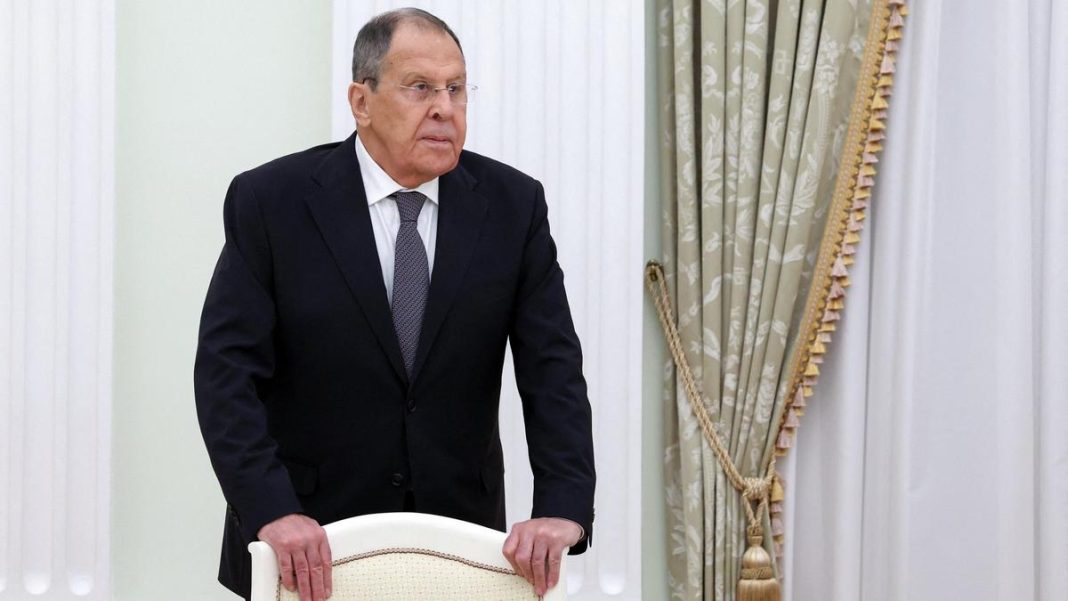The delicate balance of global nuclear security often hangs by a thread of diplomatic engagement, even amidst escalating geopolitical tensions. Recent reports suggest a glimmer of potential progress, with Russia’s Foreign Minister Sergey Lavrov indicating that the United States is actively considering President Vladimir Putin’s proposal concerning nuclear arms control. This development, if true, marks a significant moment in the strained relationship between the world’s two largest nuclear powers, holding keen interest for nations like India and carrying profound implications for international stability.
The Imperative of Dialogue: Putin’s Overture
President Putin’s proposal, reportedly put forth earlier, aims to establish a new framework for managing the vast nuclear arsenals of Russia and the United States. While specific details remain under wraps, analysts speculate it could involve extending the New START treaty, the last remaining arms control agreement, which is set to expire in 2026. Alternatively, it might propose a broader security dialogue addressing the evolving nature of nuclear warfare, including tactical nuclear weapons and new delivery systems.
The landscape of nuclear arms control has seen considerable erosion in recent years. The New START treaty, signed in 2010, capped the number of deployed strategic nuclear warheads and bombs and established an inspection regime. However, its future has been uncertain, with mutual accusations of non-compliance and Russia’s decision in 2023 to suspend its participation, citing the US’s efforts to inflict a “strategic defeat” in Ukraine. Prior to this, the US had withdrawn from the Intermediate-Range Nuclear Forces (INF) Treaty in 2019 and the Anti-Ballistic Missile (ABM) Treaty in 2002. These withdrawals have fueled concerns about an unchecked arms race and increased the risk of miscalculation.
Lavrov’s statement suggests a possible shift in the diplomatic ice between Washington and Moscow. For such a proposal to gain traction, it would require overcoming significant hurdles of deep-seated mistrust, exacerbated by the ongoing conflict in Ukraine and broader geopolitical rivalries. The mere acknowledgement of consideration, however, signals an understanding of the paramount importance of maintaining channels for communication on issues that could profoundly impact global survival.
Global Security and India’s Stake
Any constructive dialogue between Russia and the United States on nuclear arms control is invariably seen as a positive step for global security. For India, a responsible nuclear power committed to universal and verifiable nuclear disarmament, this development holds particular significance. India has consistently advocated for the strengthening of multilateral arms control regimes and has voiced concerns over the erosion of existing treaties.
New Delhi’s strategic calculus is deeply intertwined with global nuclear order stability. An uncontrolled arms race between major powers could destabilize regions, divert resources from development, and increase the proliferation risk. India maintains a “No First Use” policy and a doctrine of “credible minimum deterrence,” emphasizing its commitment to nuclear responsibility. Therefore, any move that reduces nuclear risks between the US and Russia aligns with India’s long-held principles and strategic interests.
The prospect of renewed US-Russia dialogue offers a crucial window for reducing tensions and fostering predictability. As a rising global power, India understands that stability among established nuclear states is foundational for wider international peace and security. While India is not a signatory to the Non-Proliferation Treaty (NPT), it has upheld its commitments as a nuclear weapons state and actively participated in disarmament discussions. Lavrov’s remark, therefore, resonates within Indian policy circles as a cautious but welcome development, hinting at a potential de-escalation of rhetoric and a focus on practical arms control measures.
“The very act of considering such proposals underscores the global imperative to prevent nuclear proliferation and ensure strategic stability,” an anonymous Indian foreign policy analyst commented, reflecting the sentiment in New Delhi. “Even amidst profound disagreements, the dialogue on nuclear arms control remains non-negotiable for the collective security of humanity.” This statement encapsulates India’s consistent emphasis on the need for sustained diplomatic engagement, particularly on existential issues.
Conclusion
While Lavrov’s statement offers a hopeful signal, it is crucial to temper optimism with realism. The path to a comprehensive and enduring arms control agreement is fraught with complexities, requiring immense political will and sustained dialogue. The geopolitical landscape is undeniably challenging, with the shadow of the Ukraine conflict looming large over any bilateral discussions. However, the potential re-engagement on nuclear arms control represents a vital opportunity to re-establish predictability and reduce the risk of catastrophic miscalculation.
For India and the rest of the world, this potential development underscores the enduring importance of strategic stability. As global stakeholders watch closely, any concrete steps towards de-escalation and renewed arms control efforts would be a testament to the fact that even in times of extreme tension, diplomacy remains the most crucial tool for navigating the perils of the nuclear age. The future of global security may well depend on whether these preliminary considerations evolve into substantive and mutually beneficial negotiations.




